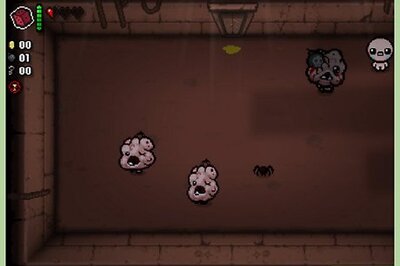
views
The Water Station, written by Shogo Ohta and directed by Sankar Venkateswaran, will be performed at Ranga Shankara from November 29 to 30. Synopsis of the play“The Water Station” is a two-hour, wordless performance. Walking through a barren landscape, eighteen travellers stop by at a dripping water faucet. They drink, soak, meet, love, fight, weep, separate and in the end, leave, while a man living in a junk pile casually observes their actions from above. Abounding in images of fragmentation and decay, the play depicts the decline and fall of human civilization. The play is about loneliness, the need for sustenance and the fragility of love.Director’s noteThe stories, images and experiences of unrest and the sad realities of human suffering caused by fellow humans are familiar to us. It is sadly a recurrent phenomenon and media takes our focus to the epicenter of these conflicts. However, the peripheries are often ignored, inaccessible and lost in oblivion. Our nature to look where there is light and listen to where there is sound also veils away our attention from some of the most important and immediate survival related concerns of humanity. It is in fact, in these dark and silent borders that life gets pushed so close to death and concerns related to human existence, rather than personal human behaviours emerge. It is in these peripheries where the majority of humanity is forced to exist while constantly confronting the realities of survival. “The Water Station” invites our attention to these edges where the unspeakable, unspoken side of human nature and existence is brought to attention. Here, the passivity of human existence takes center stage leaving the audience to be active in their imaginations, as opposed to the kind of theatre and media that focuses on action and leaves the audience to be passive and often numb. In this poetic and metaphoric piece of theatre, we meet characters who come to the water station to drink, soak, wash, dip, meet, love, fight, weep, separate and in the end, leave. This is an entirely silent, non-verbal play. However this does not mean that this is a mime or a dance piece. This is a drama strictly based on real human behavior, except for the fact that the tempo is extended and slow and characters for various reasons remain silent. The silence is from the inability of these characters to ascertain their identities and history. The silence expresses the loneliness that is always there within each one of us. Silence is living human time. The stillness rips away personality patterns, identity and even the imprints of modern life allowing the actor to express a bare and primal image of the character that is portrayed. And the slowness allows us to break free from the shackles of culture to look under its facade to perceive the essence of human nature. Silence, slowness and stillness together produce ‘Yugen’- the mysterious and melancholic beauty that allows us to gain a fresh insight on life.Playwright’s noteSilence is a means of Expression. Things can be seen well in a bright light than in the dark. This statement is true if we are thinking only from the viewpoint of optics or visual physiology. But that is not the only possible viewpoint. Cezanne pointed out that “we can see things better on a cloudy day”, and we have surely all felt that at some time or other. Indeed, it may be possible to perceive things on a cloudy day or a rainy day which cannot be perceived on a fine day. To put it another way, we may be able to discern a thing’s true features when we place it in a dimmer light or a darker situation.‘A cloudy day’ is, in essence, a light with its mouth closed. Therefore, the expression “We can see things better on a cloudy day” leads us to thoughts which utter words that cannot be told by mouths that are free: they can only be expressed by a mouth that is restricted- by holding one’s tongue. Just as we can only see certain things ‘on a cloudy day’, there are things which can only be expressed with the mouth closed. The ‘Theatre of Silence’ which I am trying to construct is not designed to exalt human beings to .



















Comments
0 comment